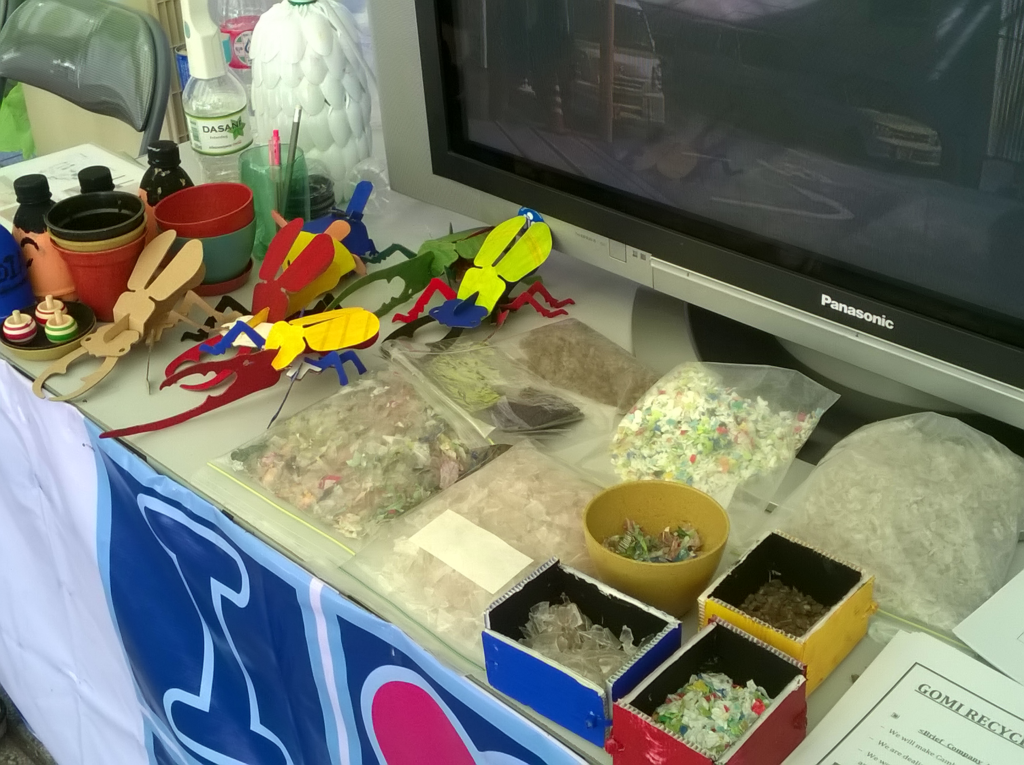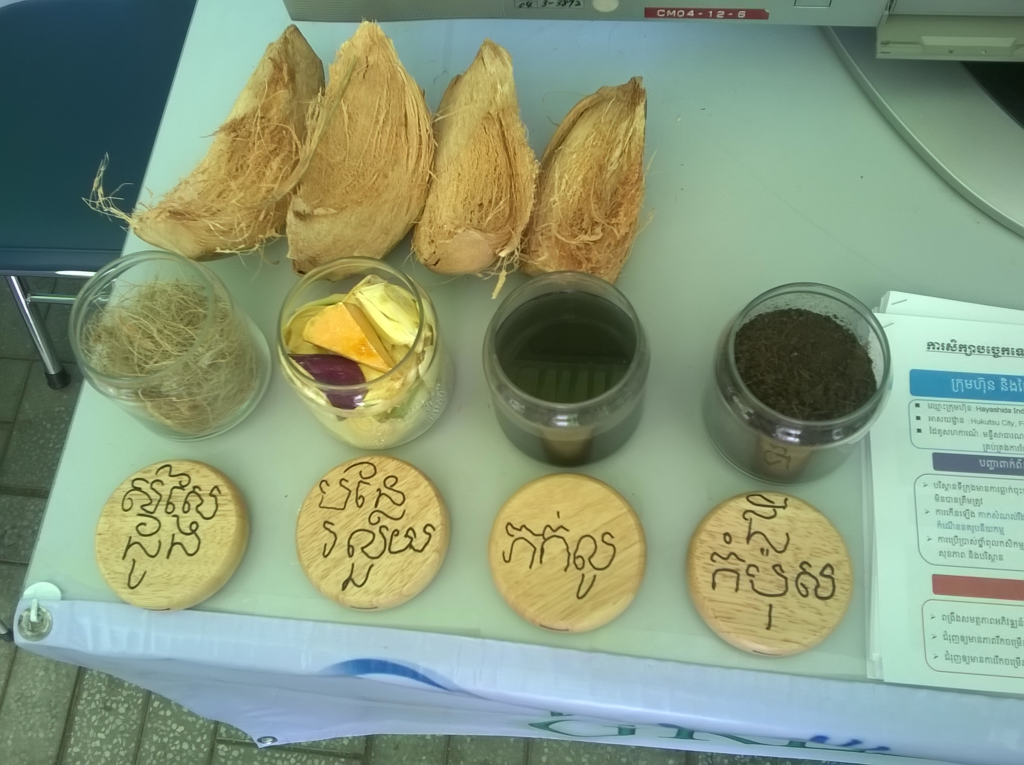Waste management and waste recycling are the two major environmental issues in Phnom Penh city. You know that they are the major threats because everywhere you look, you can see rubbish scattered on the street, pavement, grass, and inside and outside sewerage channels. Statically, Phnom Penh produces, mainly, produces three types of waste and they are organic waste, raw material waste, and plastic waste. Amongst those wastes, 65-70% is organic waste, 20-25% is raw material waste, and 10% is plastic waste. Due to fewer recycling companies or centres, all wastes are disposed of in landfills. In the past, landfills used to be pits but now they become mountains of trash.
Seeing those issues, Social Compass and JICA hold an event as an interactive projection mapping to raise awareness of environmental problems in Cambodia.

Two companies from Japan are working to eliminate waste in Cambodia, also they turn trash into treasure and create jobs for Cambodia. Gomi Recycle 110 Co., LTD is one of the two. they are working on recycling raw materials as well as plastic bottles, foam, bottle caps, and many more. Those materials were sorted into different types and then waiting for the recycling process. They are currently working on finding the best way to reduce waste including waste management, waste sorting, and waste recycling.


Sojinin and Hayashida Japan Agriculture are working together to recycle wastes into organic fertilizers. Because there are many coconut shell and mesocarp wastes, sewerage mud, and organic waste in Phnom Penh such waste could be turned into organic fertilizer so they seize the opportunity also it could help reduce waste in Phnom Penh.
After seeing some information about Japanese companies, I was led to an underground reservoir for a screening video about the environment.
